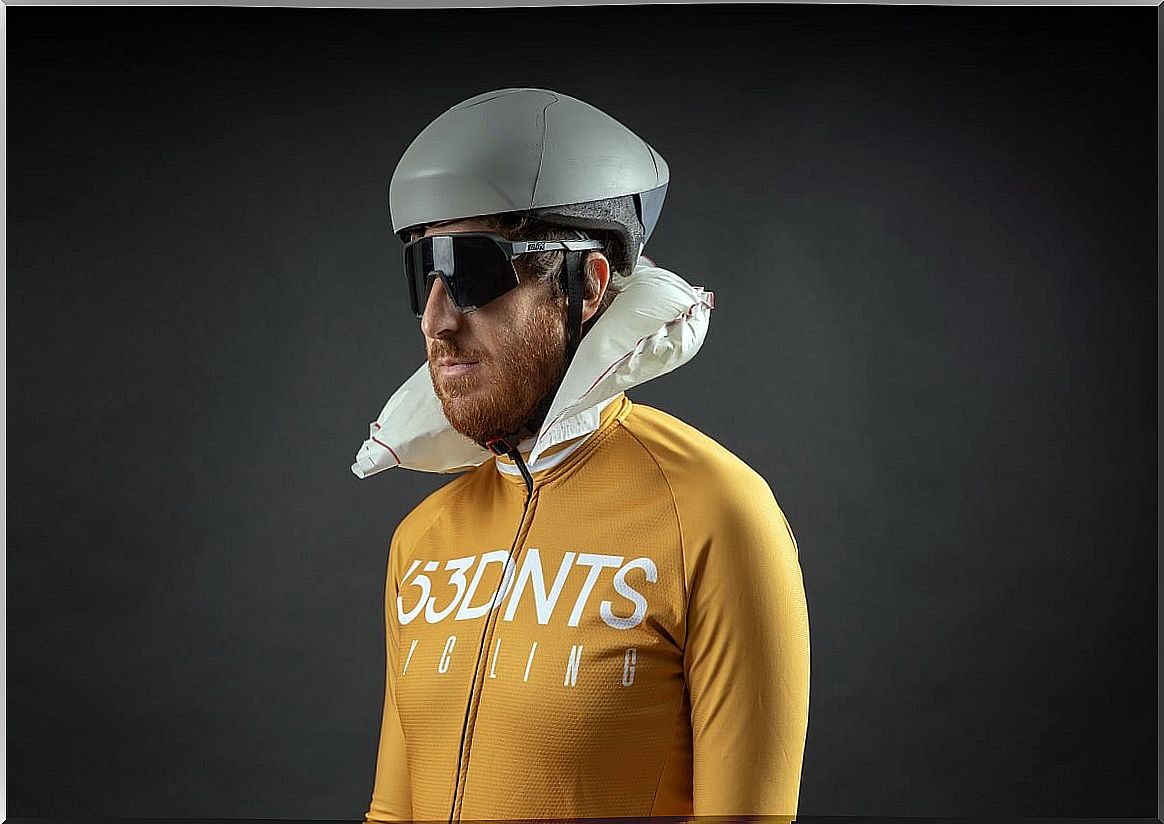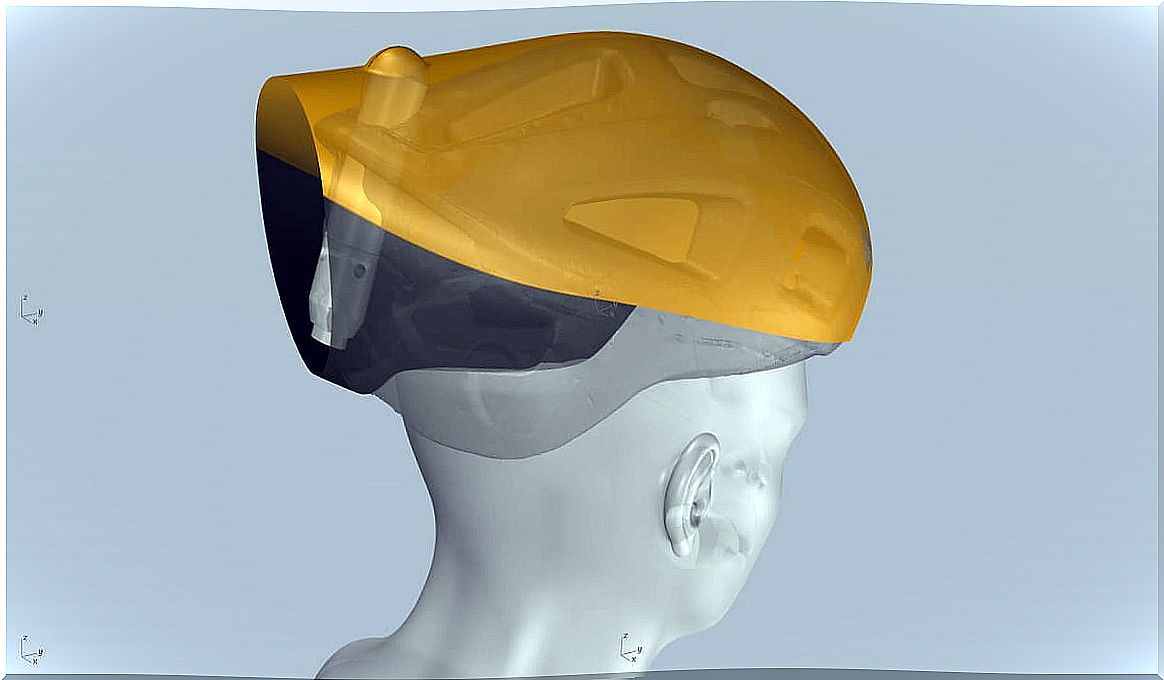The Innovative Helmet That Will Prevent Spinal Cord Injuries In Cyclists

Even when extreme precautions are taken, bicycle accidents are common. Wearing a helmet can significantly reduce the risk of head injuries, although the cervical region is still vulnerable. To change this situation, a helmet was created in Spain to prevent spinal cord injuries in cyclists. Discover its features below.
The first helmet to prevent spinal cord injuries
Designed by the startup EVIX, in collaboration with the Hospital Nacional de Paraplegicos of Toledo, this is a prototype helmet that includes an air bag to protect against possible cervical injuries. The system is automatically activated through intelligent sensors. It only takes a few milliseconds for the airbag to open and settle on the rider’s neck.
In a video published by the Barcelona-based company in January 2020, we can see computer simulations of a hypothetical bicycle accident. The inertial protection system protects the helmet wearer to reduce the chances of spinal cord trauma.
But that is not all. The helmet connects to an app that lets you send an alert message along with the location, if enabled. Likewise, it will send notifications when passing through points with a high history of accidents and suggest safer alternatives for the cyclist. The entire process is automatic and starts after fixing the equipment to the head.
Distribution is expected to start in late 2021 and, in the short term, has attracted the interest of established brands in the cycling world. Although this is its main market, the prototype can also be used in any sport that requires the use of a helmet for greater safety.

The importance of the helmet for the cyclist’s integrity
According to data from the European Commission, up to 8% of all deaths from traffic accidents are cyclists. At this point, it should be remembered that not all countries regulate the use of helmets in urban areas, especially when their users are adults.
For example, the General Traffic Directorate (DGT) stipulates the mandatory use of helmets in these contexts only for children under 16 years of age. For cyclists over the age of 16, its use is only optional, at least when transiting within the city. This is expected to be modified in the short term to implement mandatory transport and improve road safety.
According to data from the DGT itself, in 2019 there were 2,536 bicycle accidents in Spain. The numbers are not small, and in many cases, wearing a helmet can make a dramatic difference when it comes to minimizing the number of injuries or deaths. The researchers stipulate that, by itself, this helmet can reduce serious head injuries by up to 60%.
The new airbag helmet and the future of cycling
The helmet that will prevent spinal cord injuries due to EVIX is shaping up to be a new horizon in the future of two-wheel mobility. Its functionality has been meticulously tested, which was only possible thanks to collaboration with a hospital specializing in trauma.
Although the startup is not a helmet specialist, its interest in sustainable and safe mobility led it to design a model capable of reducing the number of annual injuries. The development of the helmet airbag is a family affair, as the father of one of the founders was part of the team that designed the first motorcycle helmet with a built-in airbag.

Barcelona-based company Mataró was founded in 2017 and has since won several awards and interest as an emerging initiative. Its founding partners, Marc Millet, Nil Oleaga and Lucas Llobet, are committed to a future in which the use of helmets is mandatory, regardless of the driving context.
So far there is no similar prototype helmet in the world. The closest model is the Hövding 3, designed by the Swedish company Hövding Sverige AB. The commitment to helmet airbags that prevent neck injuries is not an isolated issue; therefore, it is expected that in the coming decades its use will be natural in sports or vehicles that require it.









